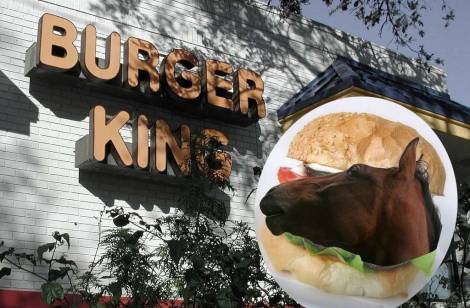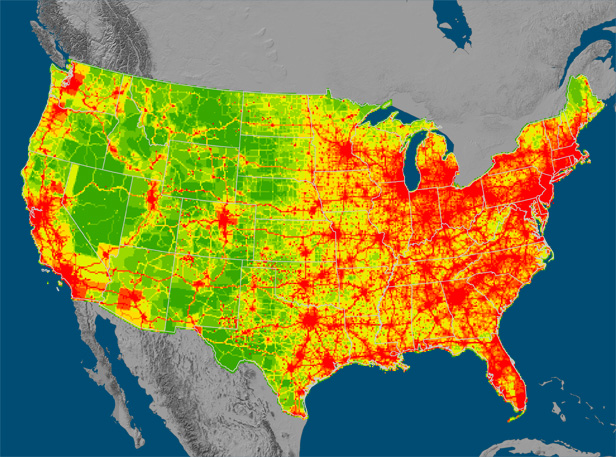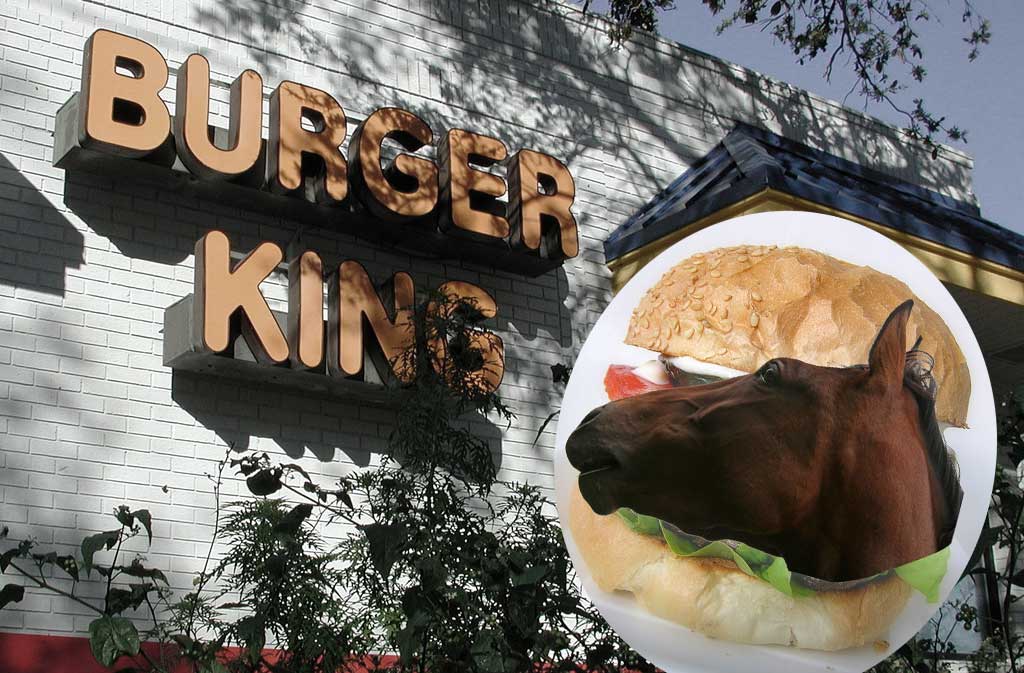
P.Bump / jamieanne / MarilynJane / Editor BThis is not a real Burger King burger.
We wrote before about how a batch of horse meat had made it into burgers in Ireland and the U.K. Original reports suggested that the problem was confined to a few grocery stores and distribution plants. Nevertheless, everyone who sold hamburgers rushed to say that their burgers contained only cow — no horse, because while turning one four-legged mammal into edible food is totally cool, turning a different four-legged mammal into edible food is gross. Now this butt-covering has come back to bite Burger King, which admitted yesterday that maybe … just maybe … they served some people “very small trace levels” of horse meat.
The fast-food company had gotten some meat from a supplier where authorities found horse meat. In public, the company said that there was “no evidence to suggest any of the Silvercrest product supplied to Burger King was affected.” In part, it seems, that was because BK hadn’t finished looking for evidence yet. And when testers started looking for telltale horse DNA, they found it. A teeny bit. Not in the burgers they took from restaurants — those were just plain old cow meat, apparently. But at their processing plant, there were indications that horse meat had been there.
There’s not necessarily anything worse about eating horse meat than there is about eating cow meat. The point is: When you buy cheap meat, you don’t really know what’s in there. And neither do the people selling it to you. This is not the sort of surprise fast-food companies promised us. We were willing to put up with the stupid plastic toys, but not mystery meat.



